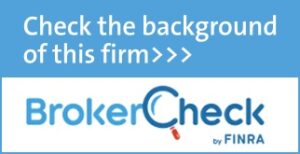
10 Tips to Help HNW Individuals Avoid an “F” On Their Financial Literacy Report Card
Financial literacy is essential for everyone but can be crucial for high-net-worth (HNW) individuals who may have more wealth to lose than others. Navigating the complex financial landscape is no small task, and having the foundation of financial literacy can help. Financial literacy is essential to wealth management because it may help mitigate the risk of costly mistakes, even for those with a high net worth. Here are ten tips to help HNW individuals avoid potential failures on their financial literacy report cards.
- Understand Financial Basics
HNW individuals must sharpen their understanding of basic financial fundamentals, such as income, expenses, savings, and taxes, and how credit works and impacts their situation.
- Leverage specialists
Given the magnitude of HNW individuals’ wealth, it is essential to work with financial professionals. These professionals can provide objective, well-informed guidance about your unique financial situation – from suitable investments and market trends to tax strategies and estate planning to help your wealth work for you as you work toward your goals.
- Stay current
Financial markets and laws governing finances and taxation constantly change. Staying informed of these changes can help ensure your financial strategies are suitable.
- Diversify investments
One of the fundamental rules of investing is not to put all your eggs in one basket. Diversifying your investment portfolio may mitigate against volatilities and risks inherent in capital markets. Spread your investments across different sectors, geographies, and asset classes appropriate to your situation, timeline, and goals.
- Engage in tax planning
HNW individuals are often subject to high tax rates, making it essential to have an effective tax strategy in place. Regularly review and adjust your tax plan, considering changes in tax laws that could significantly impact your capital and return on investments.
- Implement an estate plan
Along with an efficient tax strategy, estate planning is another critical aspect of wealth management that dictates the distribution of your assets upon death. HNW individuals must have a plan to ensure wealth is allocated according to their wishes. Estate planning may incorporate a variety of trusts, charitable giving, life insurance, and other estate-planning strategies.
- Participate in financial education
Enroll in financial literacy programs designed to provide in-depth information about different aspects of finance, from investing and taxation to risk management and estate planning. In addition, regularly read financial publications and proactively ask financial and tax professionals about changes that may affect your goals. Financial education can empower you to make better-informed financial decisions as you work toward your goals.
- Understand the Time Value of Money
The time value of money states that a dollar today is worth more than that of a dollar in the future because money today can be invested and potentially grow into a more significant amount over time.
- Regularly review your financial goals
Regularly reviewing your financial goals and adjusting your plan is critical to ensuring it aligns with your timeline and risk tolerance. Personal circumstances, economic climate, or legislation changes may require adjustments, prompting revisions and updates to help you work toward your goals.
- Embrace technology
HNW individuals must embrace the power of technology. Technology can simplify financial management, from online banking to investor wealth management platforms and financial apps, provide real-time market news, and enhance decision-making.
In conclusion, financial literacy is a lifelong commitment that requires continuous learning, staying abreast of economic, tax, and legislative developments, and regularly reviewing and adjusting your goals and plans. These ten tips can help HNW individuals enhance their financial literacy and preserve and potentially grow their wealth. Remember, a financial literacy report card reflects your understanding of finances and your readiness to work toward your financial goals and future.
Important Disclosures:
This material was created for educational and informational purposes only and is not intended as tax, legal or investment advice. If you are seeking tax, legal or investment advice specific to your needs, such advice services must be obtained on your own separate from this educational material.
Investing involves risks including possible loss of principal.
There is no guarantee that a diversified portfolio will enhance overall returns or outperform a non-diversified portfolio. Diversification does not protect against market risk.
All information is believed to be from reliable sources; however, LPL Financial makes no representation as to its completeness or accuracy.
This article was prepared by Fresh Finance.
LPL Tracking #538128
Sources:
https://www.investopedia.com/articles/03/082703.asp



